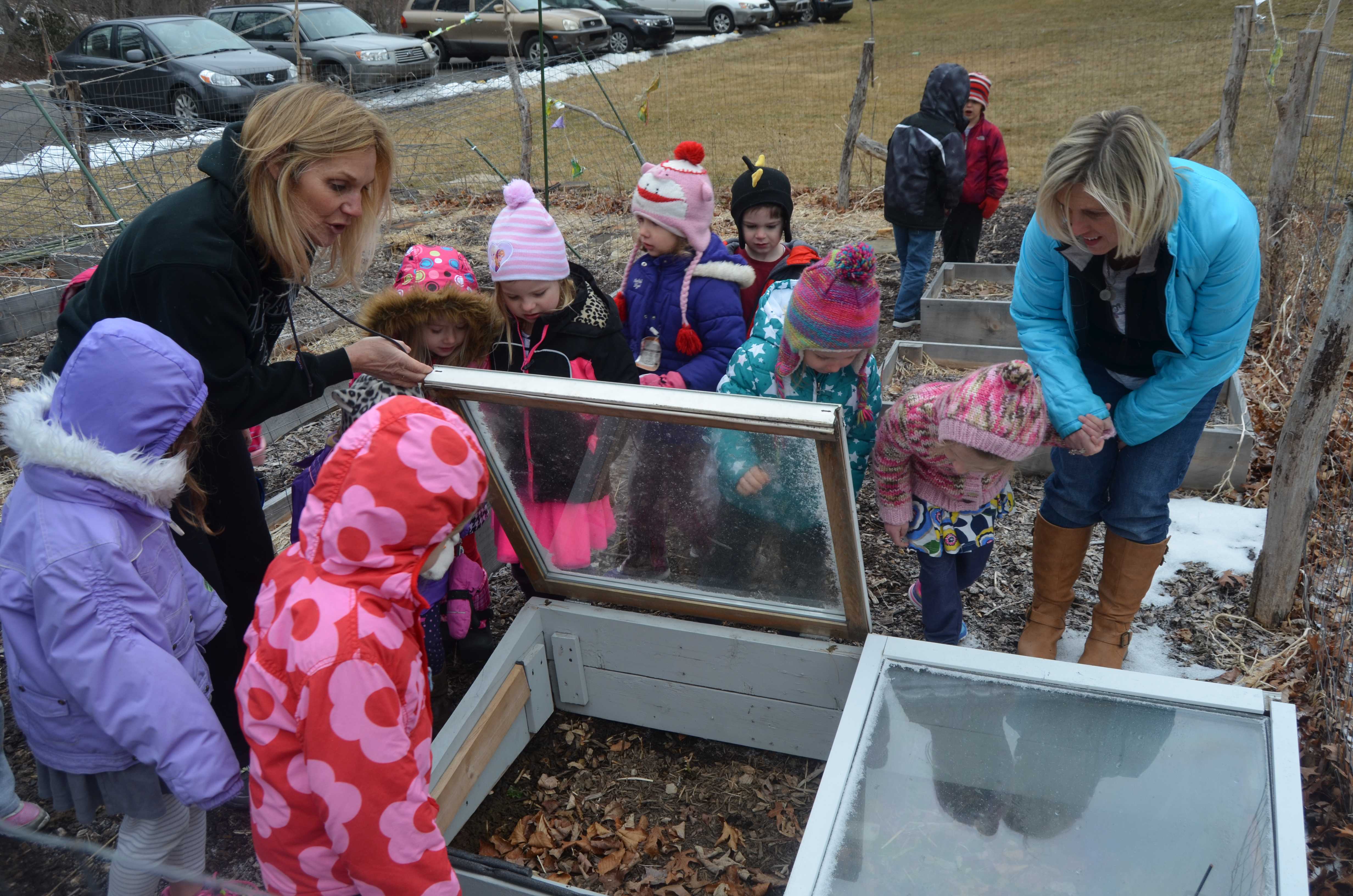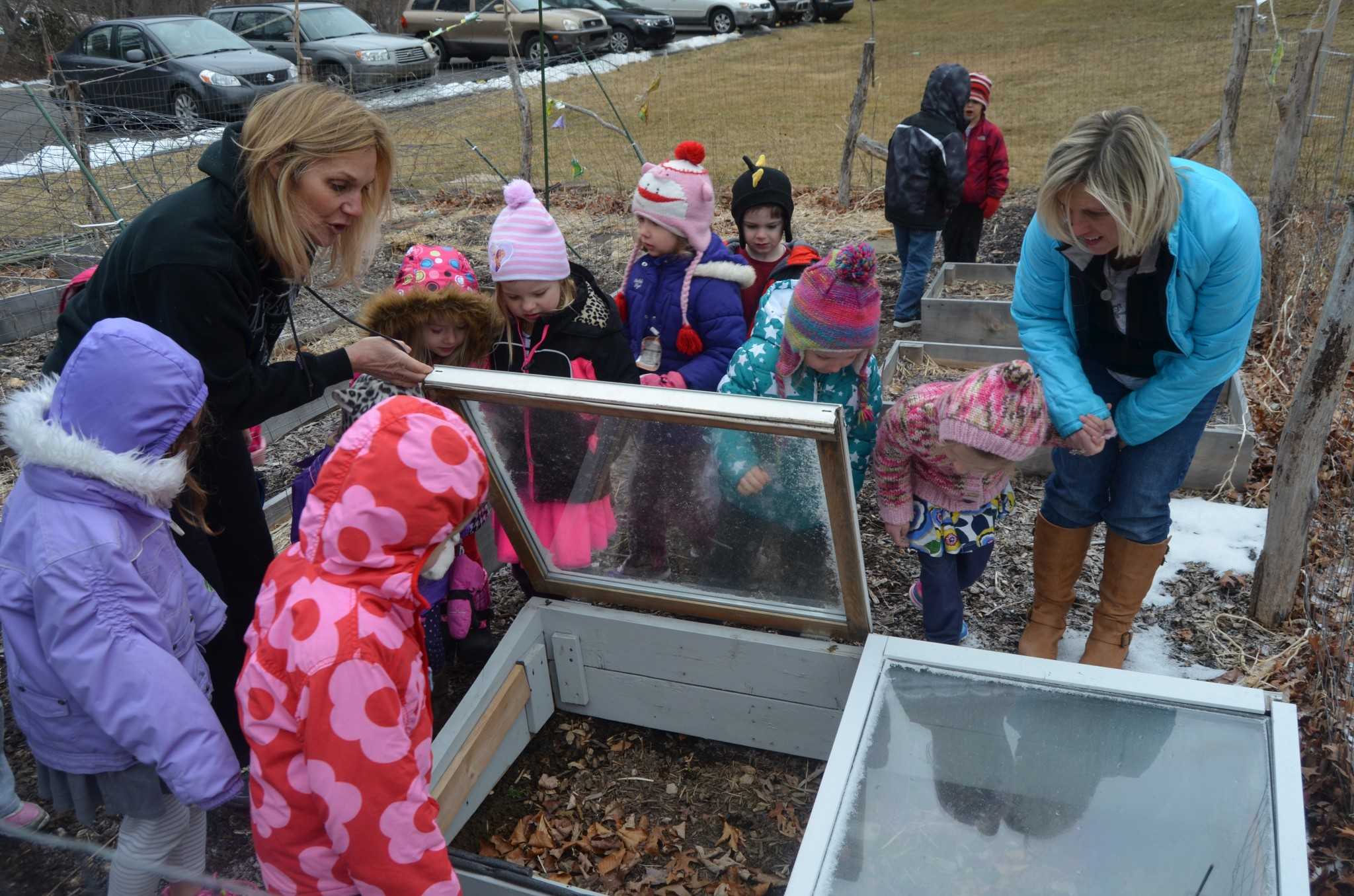The Child Development Center at Appalachian State University recently received two grants to further develop its Lettuce Learn Project, which will include new expansions to the children’s garden.

The Lettuce Learn Project provides quality garden-based education programs to children of all ages. It was started about a year ago by Courtney Baines Smith, adjunct instructor in the Sustainable Development Department and doctoral student in the educational leadership program.
Baines Smith received a $500 grant from the Research Institute for Environment, Energy and Economics for the second year in a row. In addition, the Sustainability and Environmental Education Club and the Appalachian Student Dietetic Association teamed up to apply for the Renewable Energy Institute Club Collaboration Grant for $1,500 to assist the project.
The learning garden at the Child Development Center serves as the pilot program for the Lettuce Learn
Project by providing other schools throughout Watauga County such as Parkway Elementary, Bethel Elementary and Mountain Pathways with garden coordinators, teacher training and resource sharing, Baines Smith said.
The garden is typically used for children 4-5 years old. At the garden, children are exposed to the nutritional benefits of fruits and vegetables, gardening, measuring, cooking, recycling and even composting.
“At lunch time, we’ve been saving anything that can be composed and they take to the compost bin and dump it,” said Peggy Eller, director of the Child Development Center. “It’s really cool to see them excited about doing it instead of being grossed out about it.”
A variety of vegetables are grown with individual themes like the Pizza Garden, Three Sisters Garden and the Tops and Bottoms Garden, Baines Smith said.
“I’ve seen just in the past year of working with the kids that many of them would say they didn’t like vegetables,” Eller said. “But then when they watch the lettuce grow, water it and then they get to pick it, then all of a sudden, they love lettuce.”
Many of the parents have noticed the changes in their children and some have even started gardens in their homes and implementing recycling and compost bins in their homes.
Due to the success, the Child Development Center decided to expand the garden. It is currently 24-by-24 feet. The extended part will be an additional 26-by-24 feet, Baines Smith said.
The addition to the garden will have a shed with solar panels – known as the science, technology, engineering and math shed or STEM shed – a tool lending library, a shady area with a blackboard and benches for an outdoor classroom and a sensory garden.
Every time the children go down to the garden, they learn about something new based on the 9-month curriculum created by Baines Smith that is appropriate for pre-kindergarten aged children.
“It’s a way to deliver these lessons that are age appropriate in an experiential way that’s project-based like the different parts of the plant that we can eat like the leaves, fruit, stem, root and seed, how to save the seeds, what’s in a seed, the different way that seeds are created and also math,” Baines Smith said.
The STEM shed has already been reviewed and approved to start building by Brett Scantlin, facility maintenance supervisor in the department of physical plant administration. The Child Development Center is also working with Jacob Smith, graduate student and technology major, to design the shed and work on the blueprints.
Baines Smith said the tool lending library will provide other school gardens with proper tools to start gardens and the outdoor classroom will be used to host workshops for other child care professionals or teachers.
“We’ll also have these other sensory gardens, because inside the vegetable production garden there’s rules like you can’t pick things or step on things,” Baines Smith said. “Here, we want to encourage the kids to explore, investigate and ask questions.”
The Child Development Center is hoping to have the expansion of the garden completed by April where they will showcase the use of these funds during an Earth Month and Greening My Plate Celebration.
The Student Dietetic Association will help with the showcase that will be open to the public. Participants will learn how to make solar ovens out of pizza boxes and aluminum foil and use greens from the garden to make pizzas, Baines Smith said.
“This is the age that you really want to infiltrate how important planting a seed, taking care of it and eating healthy,” Eller said. “They are sponges and they’re soaking up so much and it’s something that has to remain on-going.”
Story: Chamian Cruz, Intern News Reporter

